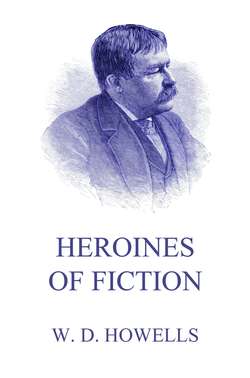Читать книгу Heroines Of Fiction - William Dean Howells - Страница 44
На сайте Литреса книга снята с продажи.
I
ОглавлениеMrs. Radcliffe inspired our Charles Brockden Brown, just as Scott inspired our James Fenimore Cooper. Scott, of course, influenced all Europe, as Richardson and Goldsmith had done in their time; and until the rise of Balzac a whole generation wrote little else but historical novels, though in Germany the romantic movement eventuated in something that was more purely romance, like the "Undine" of De la Motte Fouqué. To a certain extent among the English the romantic impulse resulted in a yet more psychological type, of which Mrs. Shelley's "Frankenstein" is a superlative example. But in that thin air woman, who is far more of " this sensible warm motion " than man, gasped for breath; and scarcely a palpable heroine remains to us from all that generation of romancers. Such diaphanous embodiments as they could give her traits, waned more and more into symbols; the art of presenting her with her vital charm, distinct, individual, actual as the early realists had known her, seemed lost; and when a realescent talent like Balzac arrived, and began to cast about him in every-day life for the bizarre contrasts and eccentricities, the surprising accidents and tremendous catastrophes which the romancers had sought afar in remote times and under strange skies, he did little to give woman her old importance in fiction. The pathetic and beautiful vision of his Eugenie Grandet rises to reproach me for saying this, and I hasten to acknowledge in her a heroine worthy of the best age of fiction. But still I think that what I say holds true, and that again, as with Hawthorne, the exception proves the rule.
As for the nautical romance which Cooper popularized, and which Captain Marryat carried forward upon the impulse Cooper had given him, it was, still less than the historical or psychological romance, the habitat of the true heroine. In my time I read every one of Marryat's novels, but no gleam of a woman's eye, or drift of a woman's drapery haunts my remembrance of them. Cooper could occasionally find use for a " female " as a captive among his Indians; and no doubt there were figures which passed for heroines in Marryat's land-going stories. Until Mr. Clark Russell's time, however, the marine novel was unfavorable to the heroine. He alone seems to have had the secret of divining lovely girls on water-logged wrecks, or of having his heroes marooned with them on palmy islands of the Spanish Main; though it is due to the many-sidedness of Charles Reade to recall that in "Foul Play," which is so largely a sea story, there is a heroine of such charm, so sweetly and truly a woman, that any man would be willing to be cast away with her on a desert coast, and very loath to be rescued, except in her company.
